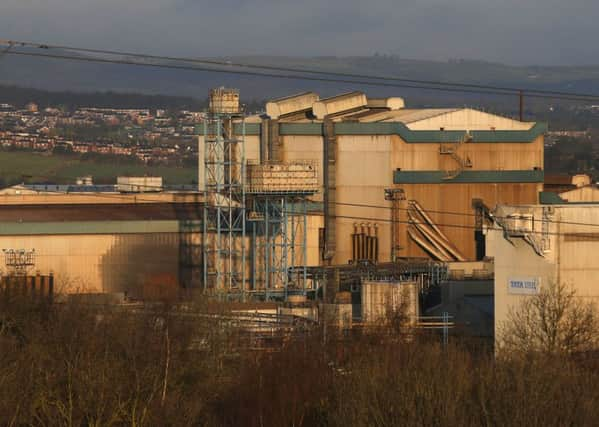YP Comment: Why was steel not a priority? Redcar alarm call was ignored


Yet, unlike those Tories like Small Business Minister Anna Soubry who have been playing party politics and blaming Lib Dems like Sir Vince to mask their own shortcomings, he does accept responsibility for the industrial strategy that was pursued by the coalition and does acknowledge the constructive role played by both David Cameron and Lord Heseltine, a Tory grandee.
However there are also regrets, not least the failure of the Government to do more to help steel producers to offset their crippling energy costs and also the Treasury’s reluctance to offer rebates on business rates to those companies fighting for their future because of global factors outside their control, like the glut of steel being produced in China.
Advertisement
Hide AdAdvertisement
Hide AdThough Sir Vince did not make direct reference to this, it is regrettable that the Government’s determination to save Port Talbot’s steelworks, the focus of the current crisis, was not replicated last autumn when the plant at Redcar shut with devastating consequences for the North Yorkshire economy. If Ministers had heeded this wake-up call at the very least, they might have been better prepared for Tata’s shattering announcement. Instead Sir Vince’s successor, Sajid Javid, resembles a Minister who is being buffeted by events as he flies to India for talks with Tata that will decide the fate of an industry that should never have been allowed to rust to this extent. His reputation and career is likely to depend on the outcome.
Doctors’ orders: NHS workload is unsustainable
THE Government will attempt to dismiss the latest report revealing the “unsustainable” workload of GPs as further evidence of the health unions making mischief as junior doctors resume their strike action.
It would be unwise of Ministers to adopt a “head in the sand” stance – the primary reason why family doctors are treating a record number of patients is because Britain’s population is continuing to increase at a rapid rate.
Unless the Government acknowledges this, and ensures that all aspects of the National Health Service have sufficient staff, these pressures will only intensify in the coming years.
Advertisement
Hide AdAdvertisement
Hide AdAnd it’s not just general practice feeling the strain – hospitals, too, are buckling because successive governments have failed to put in place measures to train a new generation of doctors and nurses who can provide the type of care that all patients have a right to expect.
Like the steel crisis, or the chronic shortage of teachers, the repercussions will only get worse if Health Secretary Jeremy Hunt remains in denial about the prognosis diagnosed by The Lancet, the “Bible” of the health profession.
Sticking plaster solutions will no longer suffice, hence why Mr Hunt and the Department of Health need to complete the following exercise: they need to forecast the demand for NHS services in 2025, and every subsequent decade, and then calculate how many staff are required to provide this volume of care. Once this calculation is made, it will be crystal clear that the staffing crisis is a 999 call which needs to be answered as a matter of urgency before the whole system of emergency care reaches breaking point.
Ducking the issue: In a flap over Nigel Gresley statue
JUST like so many of today’s trains, the statue of railway pioneer Sir Nigel Gresley, the man who deigned the record-breaking Mallard and Flying Scotsman locomotives, is long-overdue and belated public recognition for an engineer who was very much ahead of his time.
Advertisement
Hide AdAdvertisement
Hide AdYet the continuing flap about whether the monument at King’s Cross Station should have included a mallard duck – or not – is an untimely distraction. Sir Nigel deserves to be remembered as an eminent engineer; the inclusion of this, frankly, bird-brained idea would simply have created the impression that this country values eccentricity more than excellence in industry.
On the 75th anniversary of Sir Nigel’s death, perhaps the more pressing issue is who is going to design and build the trains, and railway, tomorrow so routes like the East Coast main line, synonymous with Flying Scotsman and Mallard’s feats of speed, can operate like clockwork in the future.